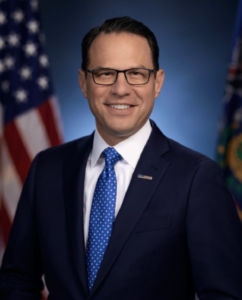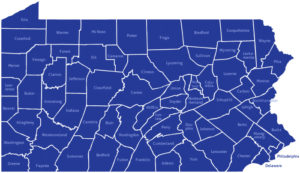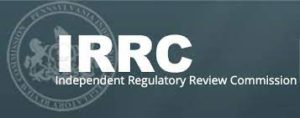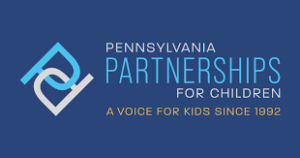PA Health Policy Update for April 28
The following is an update of selected state health policy developments in Pennsylvania from April 24 -28. (Some of the language used below is taken directly from state documents.)
Medicaid Eligibility Redetermination
Medicaid unwinding has officially begun, and recipients will begin to receive their renewal packets and additional communications from the Department of Human Services 90 days prior to their individual renewal date. Individuals can view their renewal dates in COMPASS and can begin the renewal application online up to 60 days early. Additional updates and resources about the Medicaid eligibility renewal process may be found here.
General Assembly
- The state House and Senate returned to Harrisburg on April 24 for voting session. Below is coverage of selected health-related committee proceedings.
-
- The Senate Consumer Protection and Professional Licensure Committee held a public hearing Monday, April 24 at 10:00am on professional licensing delays in health care. A recording of the hearing can be viewed here.
-
- The House Insurance Committee held a voting meeting on Monday, April 24 to consider, among other bills, SB 8 which requires insurers to cover all costs associated with genetic counseling and genetic testing for the BRCA1 and BRCA2 gene mutation if a person is diagnosed with breast or ovarian cancer or has a family history of breast or ovarian cancer, and also requires insurers to cover all costs associated with a supplemental breast screening by MRI or Ultrasound for women at increased risk of breast cancer. The bill advanced from committee and received a unanimous vote on final passage in the House. SB 8 will move to the Governor’s desk for his consideration upon signature in the Senate.
-
- The Senate Veteran Affairs and Emergency Preparedness Committee held a voting meeting to consider SB 81, which codifies the ability for EMS providers to leave a dose of Naloxone with an on-scene caregiver. The bill now moves to the full Senate for consideration. A recording of the meeting can be viewed here.
-
- The House Health Committee held an informational meeting Wednesday, April 26 on unregulated intoxicants and psychoactive substances. A recording of the hearing can be viewed here.
-
- The House Human Services Committee held a voting meeting Wednesday, April 26 to consider the following bills.
- HB 409, which would establish a mental health care services clearinghouse. The bill was reported without amendment.
- HB 754, which would provide a standard notice to each nursing home resident and their designated representatives at the time of their admission that they have the option of having legal representation to assist with the application for Medicaid benefits. The bill was re-referred to the House Health Committee.
- The House Human Services Committee held a voting meeting Wednesday, April 26 to consider the following bills.
A recording of the meeting can be viewed here.
-
- The House Professional Licensure Committee held an informational meeting on the Bureau of Professional and Occupational Affairs. A recording of the meeting can be viewed here.
- The state House and Senate will return to Harrisburg for voting session Monday, May 1. Following are selected health-related proceedings.
-
- The Senate Health and Human Services Committee is holding a voting meeting on Tuesday, May 2 at 11:00 to consider among other bills:
- SB 100, Establishing the Lyme Disease and Related Tick-Borne Illness Diagnosis and Treatment Act.
- SB 262, Amends the Maternal Mortality Review Committee Act regarding reportable events.
- SB 414, Expanding access to Sexual Assault Nurse Examiners (SANE).
- SB 500, Provides for Medicaid Coverage for Pasteurized Donor Human Milk.
- SB 549, Requires consent for pelvic, rectal, and prostate exams.
- SB 555, Reducing the loaded mileage requirements for EMS Medicaid reimbursement.
- The Senate Health and Human Services Committee is holding a voting meeting on Tuesday, May 2 at 11:00 to consider among other bills:
The meeting will be held in Room 8E of the East Wing and will be livestreamed here.
Department of Health
The Department of Health issued a Health Alert (PAHAN – 693-04-28) with updated recommendations regarding the Monovalent and Bivalent mRNA COVID-19 vaccines.
Department of Human Services
- The Department of Human Services (DHS) issued a press release highlighting how the Shapiro administration has reduced the backlog for Medicaid provider enrollment from 34,682 applicants waiting more than 30 days to less than 8,500. The press release notes the backlog has been reduced by 75 percent in the administration’s first 100 days.
- DHS has shared the following presentations used at the Medical Assistance Consumer Subcommittee meeting on April 26
- DHS has issued its report on Medicaid managed care enrollment in Pennsylvania for the month of April.
- DHS has issued Provider Quick Tip (#263) with an update notifying providers that the electronic submission process for Office of Medical Assistance Fee-for-Service (FFS) and the Office of Long Term Living’s 180-day exception requests and other claims requiring documentation is available in the PROMISe Portal.
- DHS has shared the following presentations used at the Medical Assistance Advisory Committee (MAAC) meeting on April 27
Stakeholder Events
PHC4 –Executive Committee & Council Meeting – May 4
The Pennsylvania Health Care Cost Containment Council (PHC4) has scheduled an executive committee meeting at 9:30 a.m. and a council meeting at 10:00 a.m. on May 4, 2023. Go here for additional information and details on how to register to participate.
DHS – Managed Long-Term Services and Supports Subcommittee – May 12
The Managed Long-Term Services and Supports (MLTSS) Subcommittee will hold a meeting on Friday, May 12 from 10:00 a.m. – 1:00 p.m. in the Department of Education Building’s Honors Suite, 1st floor, at 333 Market Street in Harrisburg, or via webinar. You may register for the webinar here.





 General Assembly
General Assembly Included in this month’s issue are articles about:
Included in this month’s issue are articles about: The Independent Regulatory Review Commission has issued comments in response to regulations proposed by the State Board of Nursing that address licensure by endorsement and reactivation. Find those comments in
The Independent Regulatory Review Commission has issued comments in response to regulations proposed by the State Board of Nursing that address licensure by endorsement and reactivation. Find those comments in  During the PHE, the number of uninsured children in the state fell from 4.6 percent to 4.4 percent, but some of that improvement could be reversed as the state begins to redetermine the eligibility of more than 3.5 million people currently on the state’s Medicaid rolls after a more than two-year hiatus in eligibility reviews. Today, more than 1.4 million children in Pennsylvania are enrolled in Medicaid or CHIP.
During the PHE, the number of uninsured children in the state fell from 4.6 percent to 4.4 percent, but some of that improvement could be reversed as the state begins to redetermine the eligibility of more than 3.5 million people currently on the state’s Medicaid rolls after a more than two-year hiatus in eligibility reviews. Today, more than 1.4 million children in Pennsylvania are enrolled in Medicaid or CHIP. Governor Wolf
Governor Wolf Stakeholder Events
Stakeholder Events